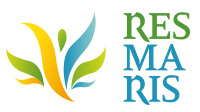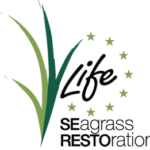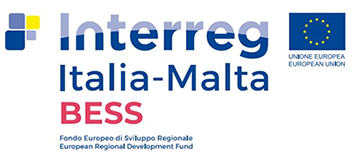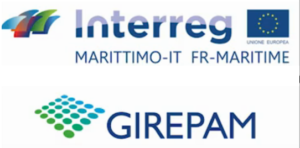Networking
As part of the SEPOSSO project, the exchange of information, experiences and good practices regarding the protection and restoration of Posidonia oceanica meadows is promoted through a specific networking action between the various actors involved (Stakeholder & Target Audience) and the various projects, at National and European level concerning both the transplantation issue and the sustainable management of coastal marine resources. We invite scientists, technicians, politicians, private companies, citizens’ associations to participate, at national and European level, to stimulate debate and increase knowledge of the main themes of the project and to actively share project messages and outputs.
The main activities carried out between Life SEPOSSO and the actors involved were collected and published periodically in dedicated reports:
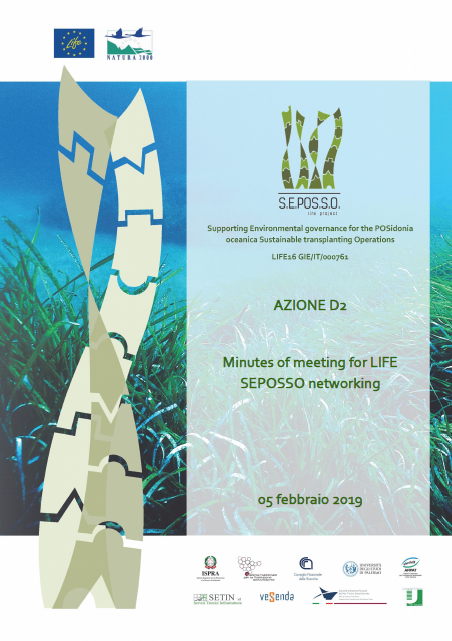 Minutes of Networking 05.02.2019 |
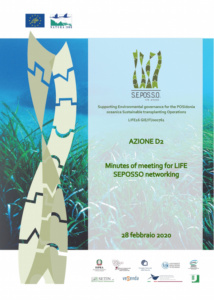 Minutes of Networking 28.02.2020 |
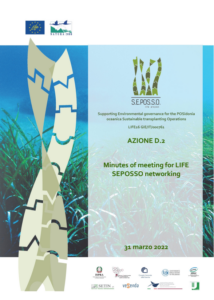 Minutes of Networking 31.03.2022 |
Main projects involved in Networking activities with Life SEPOSSO:
RES MARIS – “Regenerating threatened habitats in the marine area of Capo Carbonara, Sardinia”
LIFE13 NAT/IT/000433
“Regenerating threatened habitats in the marine area of Capo Carbonara, Sardinia”, is a project co-financed by the EU LIFE+ programme, whose mission is the conservation and regeneration of the marine and terrestrial ecosystems in the dry and submerged beach. In particular, the project focuses on priority habitats *2250 “Coastal dunes with Juniperus spp.”, *2270 “Dunes with Pinus pinea and/or Pinus pinaster forests” and 1120* “Posidonia beds (Posidonion oceanicae)” identified in Directive 92/43/EEC and contained within the ITB040020 SCI “Isola dei Cavoli, Serpentara, Punta Molentis e Campulongu”.
- LIFE SEPOSSO has started the exchange of visibility within the respective websites and project products (effects on Action D.1).
- LIFE SEPOSSO will be present on May 24-25th 2018 at final conference of RES MARIS project to share the results of Posidonia oceanica transplanting activities trapianto carried out at Capo Carbonara.
- The networking activity led to the definition of an agreement whereby the data and monitoring results collected in Life RES MARIS will be used within the analysis process undertaken by Life SEPOSSO for the achievement of the objectives set (impact on Actions B.2 and B.3).
- Life SEPOSSO hosted RESMARIS during the Final Meeting of 15 March 2022 “Posidonia… and more” for the exchange of knowledge between the projects and the replicability in the replanting techniques of Posidonia oceanica (impact on Action B.4).

ROC-POP – “Promoting biodiversity enhancement by Restoration Of Cystoseira POPulations”
LIFE16 NAT/IT/000816
This project aims to trigger the reforestation of Cystoseira within the Cinque Terre and Miramare marine protected areas, where this taxon was present, as proven by museum and scientific literature records. Disappearance causes have been removed and the protection is guaranteed by the marine protected areas. The project involves the transplanting of Cystoseira cultured juveniles, with advantages in terms of time, costs and ecological impact.
- LIFE SEPOSSO has started the exchange of visibility within the respective websites and project products (effects on Action D.1).
- Life SEPOSSO hosted Life ROC-POP during the Final Meeting of 15 March 2022 “Posidonia… and more” for the exchange of knowledge between the projects the governance of the restoring actions of the habitats of the Natura2000 network and the restoration of ecosystem functions (impact on Action B.1 and B.4).
SeResto – “Habitat 1150* (Coastal lagoon) recovery by SEagrass RESTOration. A new strategic approach to meet HD & WFD objectives”
LIFE12 NAT/IT/000331
The project LIFE SeResto (LIFE12 NAT/IT/000331) aims to trigger a process of aquatic angiosperm recolonization in SIC IT3250031 “Northern Lagoon of Venice”, mainly through the transplantation of Zostera marina and Zostera noltei to small sites distributed throughout the area.
- LIFE SEPOSSO has started the exchange of visibility within the respective websites and project products (effects on Action D.1).
- The progress of the LIFE SEPOSSO project was presented as part of the final conference of the European LIFE SERESTO project to be held in Rome, c/o Submarine Club Marina Militare, on 11 April 2018.
- Life SEPOSSO hosted Life SERESTO during the Final Meeting of 15 March 2022 “Posidonia… and more” for the exchange of knowledge between the projects on the governance of the restoring actions of the habitats of the Natura2000 network and the restoration of ecosystem functions (impact on Action B.1 and B.4).

ODYSSEA – Operating a network of integrated observatory systems in the Mediterranean Sea
Horizon 2020 research and innovation programme under grant agreement No 72727
ODYSSEA will develop, operate and demonstrate an interoperable and cost-effective platform that fully integrates networks of observing and forecasting systems across the Mediterranean basin, addressing both the open sea and the coastal zone. The platform will collect its data from the many databases maintained by agencies, public authorities, and institutions of Mediterranean EU and non-EU countries, integrating existing earth observation facilities and networks in the Mediterranean Sea building on key initiatives such as Copernicus, GEOSS, GOOS, EMODNet, ESFRI, Lifewatch, Med-OBIS, GBIF, AquaMaps, Marine IBA e-atlas, MAPAMED and others with marine and maritime links.
- LIFE SEPOSSO participated in the workshop dedicated to the stakeholders of the H2020 ODYSSEA project, in Rome 25 October 2017.
 LIFE REDUNE – Restoration of dune habitats in Natura 2000 sites of the Veneto coast
LIFE REDUNE – Restoration of dune habitats in Natura 2000 sites of the Veneto coast
LIFE16 NAT/IT/000589
LIFE REDUNE is a project financed by European Program LIFE 2014-2020. The LIFE REDUNE project’s overall aim is to restore and maintain the ecological integrity of a full set of dune habitats listed in Annex I of the Habitats Directive, along with the populations of Stipa veneta, an endangered plant endemic to the dunes of northeast Italy, which is listed in Annex II of the directive as a priority species for conservation. The objective is to guarantee the ecological restoration of the coastal dunes of four Natura 2000 network sites along the North Adriatic coastline. For this purpose, 91.5 ha of shifting dunes will be restored using natural engineering techniques and around 82.3 ha of transition and fixed dune habitats will be restored and duly managed. The habitat restoration process will be facilitated by the planting of 151 000 native plants (including 1 000 belonging to the Stipa veneta species) and the removal of invasive alien species (e.g. Oenothera stucchii). Additionally, 985 m of boardwalks and 9 300 m of fences will be built to regulate public access to the beaches. This is expected to favour the habitats’ natural dynamics and recovery; and to mitigate the risk of negative interference by people, combined with networking and communication actions. .
- LIFE SEPOSSO has started the exchange of visibility within the respective websites and project products (effects on Action D.1).
 LIFE ASAP – Alien Species Awareness Program
LIFE ASAP – Alien Species Awareness Program
LIFE15 GIE/IT/001039
Through information, communication and training, the goal of the LIFE ASAP project (Alien Species Awareness Program, LIFE15 GIE/IT/001039) is to reduce the introduction rate and the impact of invasive alien species in Italy. Reaching this goal entails raising awareness about the risks associated with biological invasions, triggering wise behavior towards invasive alien species, and helping public institutions in implementing the EU Regulation 1143/2014 in a correct and effective way. The LIFE ASAP is co-funded by the European Commission under the EU-LIFE programme. It is carried out by the Italian ISPRA (Istituto Superiore per la Protezione e la Ricerca Ambientale, Institute for Environmental Protection and Research) together with Legambiente, Federparchi, Regione Lazio, University of Cagliari, Nemo s.r.l. and Unicity s.r.l.; it is also co-funded by the Italian Ministry of the Environment and four national parks (Gran Paradiso, Arcipelago Toscano; Appennino Lucano, Val d’Agri, Lagonegrese; Aspromonte).
- LIFE SEPOSSO has started the exchange of informations to organize the future encounters and the exchange of the project products (effects on Action D.1).
- Life SEPOSSO hosted Life ASAP during the Final Meeting of 15 March 2022 “Posidonia… and more” for the realization of educational workshops for middle school children to disseminate the importance of the habitats of the Natura2000 network (impact on Action D.1).
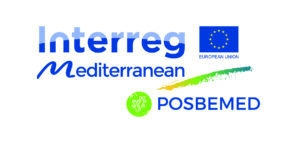 POSBEMED Interreg Mediterranean project
POSBEMED Interreg Mediterranean project
POSBEMED Interreg Mediterranean project starts in 2016 and it will finish in July 2018. POSBEMED will look at the management, conflicts and opportunities of the Mediterranean coast, particularly in coastal protected and Natura 2000 areas where interdependence between seagrass meadows, dunes and beaches occurs, with a view to provide a Mediterranean strategy and governance model for enhancing management effectiveness of these areas and beyond. By integrating the results of several past projects and examining management practices, stakeholders’ perception and expectations, guidelines with innovative management tools will be produced to enhance local administrations and coastal managers’ capacity across the Mediterranean. The results will assist in improving protection measures and enhancing management effectiveness on these connected habitats, while promoting local blue growth and nature-based solutions on the use and sustainable management of the seagrass banquettes.
- LIFE SEPOSSO has started the exchange of informations to organize the future encounters and the exchange of the project products (effects on Action D.1).
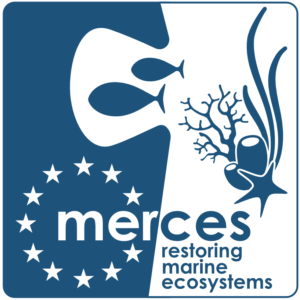 Horizon2020 MERCES
Horizon2020 MERCESGA 689518
The Horizon2020 MERCES project “Marine Ecosystem Restoration in Changing European Seas” (GA 689518, www.merces-project.eu) aims to assess the outcomes of different solutions for marine restoration across habitats and ecosystems (from shallow waters to the deep sea) and to determine the degree of their effectiveness along with a socio-economic/cost-benefit analyses. MERCES also aims to generate new job opportunities and create a new generation of experts in the field of environmental recovery. MERCES will provide a strong platform for the transfer of knowledge to the whole restoration community, including business, public administrations and civil society. The findings of MERCES will be translated into practical guidance for industry on how and when to implement marine restoration measures. Coupled with regulatory reform, this will help stimulate private-sector innovation in marine restoration, create economic opportunity as well as promoting sustainable business. The MERCES project is coordinated by Polytechnic University of Marche (Ancona, Italy) with the participation of 28 partners.
-
- LIFE SEPOSSO has started the exchange of informations to organize the future encounters and the exchange of the project products (effects on Action D.1).
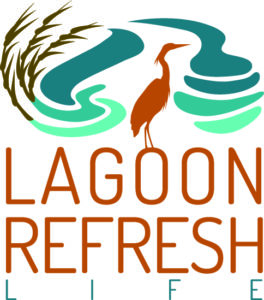 Life Lagoon Refresh
Life Lagoon Refresh
LIFE16 NAT/IT/000663
The Life Lagoon project Refresh – Coastal lagoon habitat (1150 *) and species recovery by restoring the salt gradient increasing fresh water input – by introducing of fresh water from the Sile River to the Venice Lagoon, aims at restoring the salt gradient, at recreating the reed habitat and at improving the lagoon environment and its biodiversity. It involves ISPRA (Institute for Environmental Protection and Research) as Lead Partner and, as associated partners, the Veneto Region Environment Directorate, the University of Venice – Department of Environmental Sciences, Computer Science and Statistics, the Interregional Education Office OO.PP. for Veneto – Trentino Alto Adige – Friuli Venezia Giulia and IPROS Ingegneria Ambientale Srl. The project has a duration of five years and started in September 2017.
- LIFE SEPOSSO has initiated the exchange of links within their respective websites and in social activity to increase the visibility of project products (effects on Action D.1).
- LIFE SEPOSSO participated with LIFE LAGOON REFRESH in the European Natura 2000 Network Day at the prestigious Presidential Estate of Castelporziano (Rome), Monday 21 May 2018. The day was dedicated to the presentation of the LIFE projects in which ISPRA is involved (effects on Action D. 1 and D.2).
- Life SEPOSSO hosted Life LAGOON REFRESH during the Final Meeting of 15 March 2022 “Posidonia… and more” for the exchange of knowledge between the projects on the governance of the restoring actions of the habitats of the Natura2000 network and the restoration of ecosystem functions (impact on Action B.1 and B.4).
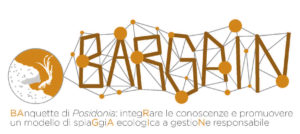 BARGAIN – “La BAnquette di Posidonia: integRare le conoscenze e promuovere un modello di spiaGgiA ecologIca a gestioNe responsabile”
BARGAIN – “La BAnquette di Posidonia: integRare le conoscenze e promuovere un modello di spiaGgiA ecologIca a gestioNe responsabile”
Bando della Regione Lazio “Progetti di Gruppi di Ricerca”
The project funded under the Call of the Lazio Region “Research Group Projects” aims to identify and promote eco-sustainable and innovative management strategies for Posidonia accumulations on sandy shores at regional level. The 26-month project involves collaboration between public research organizations in the region such as the Institute for Environmental Protection and Research (ISPRA), the University of Tor Vergata (Rome), ENEA Casaccia (Rome). Added to this is the collaboration of some individuals who will have an important role in the aspects linked to communication and the involvement of companies such as: Green Chemistry, BIOGAS, PN Circeo, WWF and RAI (Blue Line).
The aims of the project are: i) to update and integrate the state of the art on the phenomenon of the stranding of Posidonia in Lazio region and of the banquette management methodologies, ii) to create a pilot model of ecological beach, exportable on a national / international scale, with demonstration prototypes of management and reuse of banquette, to be developed in collaboration with the artisan and industrial realities of Lazio region, at a beach in the Circeo National Park; iii) carry out information and training activities aimed both at the beach users (adults and children) to favor the change of opinion regarding the presence of the banquette and to re-evaluate the concept of natural beach, both to managers (Administrations / Dealers) to encourage and support eco-friendly banquette management models.
- LIFE SEPOSSO has initiated the exchange of links within their respective websites and in social activity to increase the visibility of project products (effects on Action D.1).
- Life SEPOSSO hosted BARGAIN during the Final Meeting of 15 March 2022 “Posidonia… and more” for the realization of educational workshops for middle school children to disseminate the importance of the habitats of the Natura2000 network (impact on Action D.1).
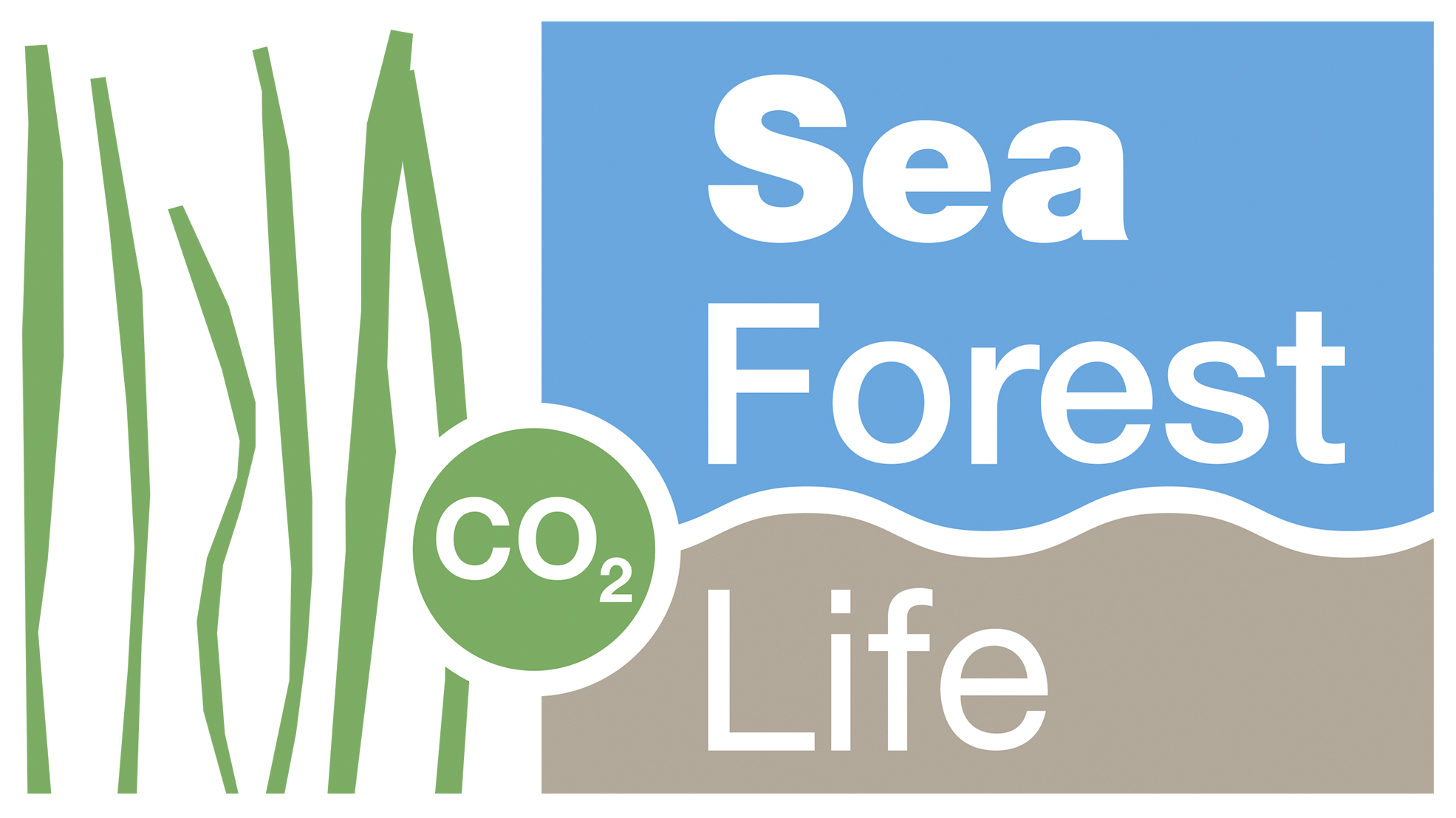 SEA FOREST LIFE – Posidonia meadows as carbon sinks of the Mediterranean
SEA FOREST LIFE – Posidonia meadows as carbon sinks of the Mediterranean
LIFE17 CCM/IT/000121
The SEAFOREST LIFE project “Posidonia meadows as carbon sinks of the Mediterranean” was presented by D.R.E.Am. Italy, ISPRA, CNR, University of Tuscia, Water Right Foundation, La Maddalena Archipelago National Park, Cilento National Park, Vallo di Diano and Alburni, Asinara National Park, Carbon Sink Group s.r.l. and Paragon Limited (Malta).
The project concerns the 1120 * Posidonia oceanica meadows habitat, which is proving to be significant with regard to carbon deposits, the accumulation of which has been going on for thousands of years. Despite the importance of this ecosystem service, also for the biodiversity that it hosts, this habitat is disappearing at a rate that is four times higher than that of terrestrial forests. LIFE SEA FOREST aims therefore at increasing the capacity of the carbon reservoirs of the Posidonia meadows, through actions to reduce erosion and to consolidate the habitat.
The specific objectives are: i) to quantify carbon deposits and seizure rates of phanerogam habitats; ii) to analyze future developments, from the rate of carbon loss, to the potential carbon fixation and accumulation rates; iii) estimate the ratio between carbon emission and sequestration in the formations subject to degradation and erosion; iv) to define the assessment standards for carbon reservoirs of seagrass habitats; v) identify good practices for the defense of these formations and their carbon reservoirs (actions for the reduction of habitat erosion, actions for the management of stranded plant waste) and for their enlargement (actions for increasing the ‘habitat); vi) encourage dialogue at the national level to activate a network of companies and organizations involved in the carbon trading market; vii) to involve the network of Italian Protected Areas in order to promote projects to transfer the technical results achieved in the project.
- LIFE SEPOSSO has initiated the exchange of links within their respective websites and in social activity to increase the visibility of project products (effects on Action D.1).
- Life SEPOSSO participated in the Opening Meeting organised by Life SEAFOREST on 30 September 2019 bringing its contribution about the ongoing Governance analysis on the transplants of Posidonia oceanica (impact on Action B.1).
- Life SEPOSSO hosted Life SEAFOREST during the Final Meeting of 15 March 2022 “Posidonia… and more” for the exchange of knowledge between projects on the governance of restoring actions of Natura 2000 habitats and the restoration of ecosystem functions (impact on Action B.1 and B.4).
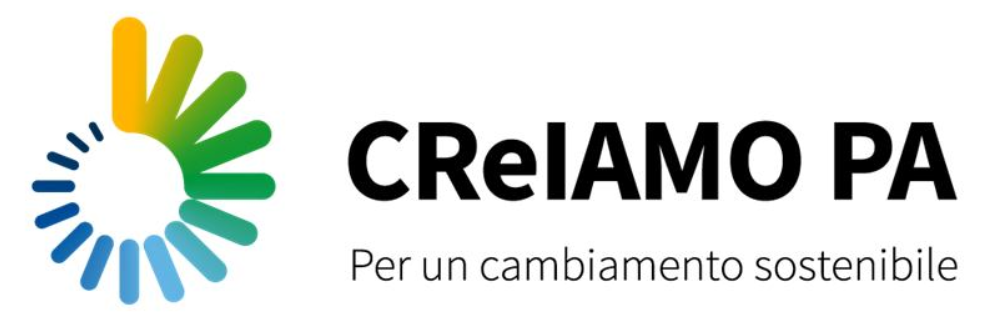 CReIAMO PA – Competenze e reti per l’integrazione ambientale e per il miglioramento delle organizzazioni della PA
CReIAMO PA – Competenze e reti per l’integrazione ambientale e per il miglioramento delle organizzazioni della PA
The CReIAMO PA Project – Skills and networks for environmental integration and for the improvement of PA organizations was admitted to funding under the National Operational Program Governance and Institutional Capacity 2014-2020 – Axis 1 “Development of administrative and institutional capacity for the modernization of the Public Administration “- Action 1.3.3” Interventions for the improvement of administrative capacity, central and regional, for the integration of environmental sustainability “.
The Project interprets the process of modernization of the Public Administration, strongly supported by the NOP in the context of Axis I, as a path based on the three “pillars” of sustainable development (environmental, socio-institutional, economic) and able to ensure that the skills, knowledge and skills are acquired as capillary and durable as possible over time.
The Project aims to spread an administrative culture aimed at taking into account, introducing and consolidating the aspects connected to environmental sustainability in the different phases of its action (planning / planning, implementation, management, verification / control, revision), with reference to the organizational structure as a whole, adopting an approach aimed at overcoming sectoral or single-issue logics.
- LIFE SEPOSSO participated in the seminar “Comunicazione, consultazione, partecipazione nelle valutazioni ambientali: per una carta d’intenti” on 22 January 2019 at the MATTM (effects on Action B.1).
 REMEDIA Life – REmediation for Marine Environment and Developement of Innovative Aquaculture
REMEDIA Life – REmediation for Marine Environment and Developement of Innovative Aquaculture
LIFE16 GIE/IT/000700
The Remedialife project is funded under the LIFE-ENV Community Program with Grant Agreement number LIFE16 ENV / IT / 000343. The project has a four-year duration and involves collaboration between various Italian research institutions (University of Salento, University of Bari, IRSA CNR of Taranto) and the plant
Maricoltura Mar Grande S.c.a.r.l. of Taranto. The project aims to: reduce the environmental impacts of aquaculture activities; improve the quality of the biomass of the produced fish; diversify production with the opening of new markets in relation to the marketing of non-edible biomass, which represents a high value by-product commercial; develop a management plan by the pilot company; produce validated methodological guidelines applicable throughout Europe; raise awareness through communication and dissemination activities.
- LIFE SEPOSSO participated in the REMEDIA Life on the beach event to be held on Saturday 25 May 2019 at the Babylon – Torre sant’Andrea, Municipality of Melendugno (LE), dedicated to presenting the activities carried out in the REMEDIA Life project.
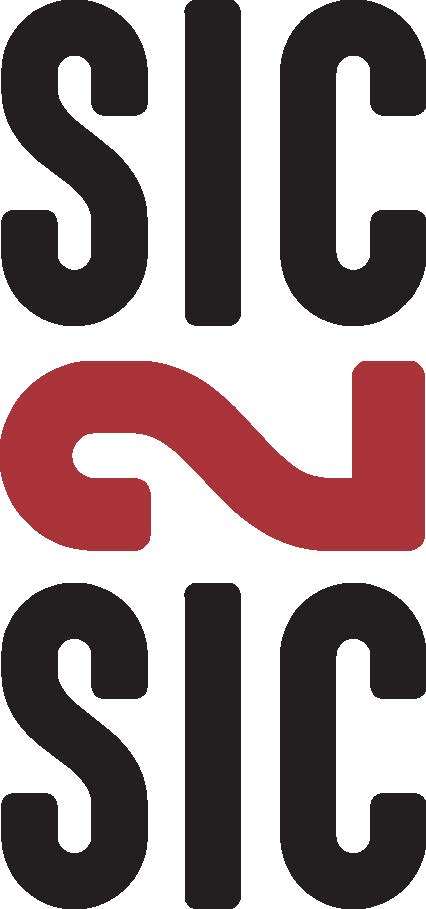 Life Sic2Sic – “In bici attraverso la Rete Natura 2000 italiana”
Life Sic2Sic – “In bici attraverso la Rete Natura 2000 italiana”
LIFE16 ENV/IT/000343
The Life Sic2Sic Project, through a dynamic and innovative communication method, aims to create awareness of citizens, schools, businesses and institutions about the meaning and importance of the Natura 2000 Network and of the entire system of Protected Areas: using the bicycle, there are 100 stages to connect over 170 sites of the Natura 2000 network in 7 Italian regions (Friuli-Venezia Giulia, Lazio, Umbria, Sardinia, Piedmont, Puglia and Sicily). Furthermore, weekly public rides are scheduled in the most important sites of the regions crossed.
- LIFE SEPOSSO has initiated the exchange of links within their respective websites and in social activity to increase the visibility of project products (effects on Action D.1).
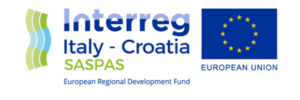 Interreg SASPAS
Interreg SASPAS
The Interreg Italy-Croatia project “Safe Anchoring and Seagrass Protection in the Adriatic Sea- SASPAS” has as its objective the conservation of the phanerogams of the Adriatic Sea through: – innovative eco-friendly anchoring systems; – pilot transplants in the Natura2000 sites of the project (Coastal Dunes- Brindisi, Kornati Islands-Croatia, Monfalcone); – the conscious tourist use of coastal resources; – the definition of an integrated management system for prestigious tourist areas. The project stems from a partnership between the Municipality of MONFALCONE (LP), SELC Società Cooperative – Venice, – CONISMA- National Inter-University Consortium for Marine Sciences, Natural Park of Coastal Dunes from Torre Canne to Torre San Leonardo – Brindisi, CORILA – Consortium for the coordination of research on the Venice lagoon system, KORNATI Nation Park – HR, University of Rijeka – Rijeka, SUNCE – Association for Nature, Environment and Sustainable Development Split-Split.
- LIFE SEPOSSO has started the exchange of links in the social activity to increase the visibility of the project products (impact on Action D.1).
- The Interreg project scientists participated in the “Restoring and governance networking day” organized by LIFE SEPOSSO on 27 September 2019 in Ischia Ponte (NA) for the exchange of knowledge and experiences between projects and the sharing of scientific and popular objectives.
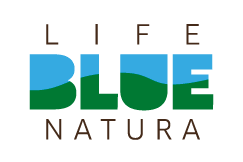 Life BlueNatura – “Andalusian blue carbon for climate change mitigation: quantification and valorization mechanisms”
Life BlueNatura – “Andalusian blue carbon for climate change mitigation: quantification and valorization mechanisms”
LIFE14 CCM/ES/000957
The main objective of the LIFE Blue Natura project is to quantify the carbon deposits and sequestration rates of the habitats of marsh meadows and marine phanerogams in Andalusia. An emphasis will be placed on what accumulates underground or at sea, as well as analyzing expected future developments, from the carbon loss rate, to the potential carbon fixation and accumulation rates, and the carbon emission / sequestration ratio from medow areas damaged to the atmosphere. This information will allow for an approximate evaluation of the environmental services created by these habitats. It should also encourage existing initiatives to finance habitat conservation and restoration projects to foster the absorption of blue carbon and the development of key policies for mitigation and adaptation to climate change, with particular attention to trading in carbon emissions or at the carbon market.
- On 30 September 2019 Life SEPOSSO, together with Life BLUE NATURA, participated in the initial conference of the Life SeaForest project – LIFE17 CMM / IT / 000121.
- Life Seposso participated on 15-17 September 2020 in the international workshop “Training workshop in coastal wetlands and seagrass meadows reston, based in Blue Carbon actions” organized by IUCN Mediterranean Cooperation Center and Life Blue Natura. (impact on Action B.4).
- Life SEPOSSO participated in the drafting of the “Manual for blue carbon projects in the Mediterranean and Europe”. CHAPTER 8: BLUE CARBON – ECOSYSTEM RESTORATION – Active Restoration: Collection Of Transplant Units (relapses on Action B.4).
- Life SEPOSSO hosted Life BLUE NATURA during the Final Meeting of 15 March 2022 “Posidonia… and more” for the exchange of knowledge between the projects the governance of the restoring actions of the habitats of the Natura2000 network and the restoration of ecosystem functions (impact on Action B.1 and B.4).
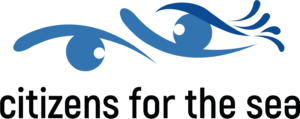 Citizens for the Sea
Citizens for the Sea
The Citizens for the Sea citizen science project is the result of a collaboration agreement between ISPRA and the Italian Naval League. It will involve the 250 sections of the LNI throughout Italy, which have about 60,000 members.
The project involves the collection of data at sea during the activities of LNI members and during regular or specially organised sailing trips.
ISPRA researchers will provide training to members (on Posidonia oceanica meadows and floating marine litter) and will coordinate the collection of reports on sightings during regattas and recreational dives promoted by its Sections. The topics are: 1) Observations on the Posidonia oceanica meadow and 2) Sightings of floating litter (marine litter). The data/signals will be collected (e.g. through cards or smartphone applications) and will be validated by expert researchers in the various subjects; they will be processed and become common heritage. The expected effects are: 1) scientific: implementing knowledge, collecting data through the application of a scientific method and thus contributing to the formation of a participatory science, where the members and sympathisers involved become an integral part of the scientific process; 2) educational: possibility of increasing the knowledge of the members and sympathisers involved in the project; 3) social: raising the awareness of the members and sympathisers involved towards a culture of respect for the use of the marine environment and the protection of marine biodiversity.
- LIFE SEPOSSO participated, on 27 September 2021, in the project webinar to define a methodological protocol and a sampling form for data collection on “Reporting the presence of Posidonia oceanica, flowers and fruits of the plant and damage to the meadows”.
- The pilot phase of the Citizens4thesea project started in October 2021, thanks to the collaboration of some LNI Sections selected to test the proposed data collection methodologies.
- Life SEPOSSO hosted the LNI during the Final Meeting of 15 March 2022 “Posidonia… and beyond” for the exchange of knowledge between projects on dissemination and dissemination actions of the importance of Natura2000 habitats (impact on Action D.1).
“Bess” Pocket Beach Management & Remote Surveillance System is a project co-funded by the European Union, lasting 30 months, coordinated by prof. Salvatore Cuzzocrea, Rettore dell’Università di Messina (MIFT-UNIME). This project brings together two Maltese partners the Ministry of Godo and Euro-Mediterranean Centre on Insular Coastal Dynamics (ICoD) togetherwith three Sicilian partners: l’Università degli Studi di Messina, Dipartimento di Scienze Matematiche e Informatiche, Scienze Fisiche e Scienze della Terra (MIFT-UNIME), l’Università di Palermo, Dipartimento di Scienze della Terra (DiSTeM-Unipa), l’Istituto Nazionale di Geofisica e Vulcanologia (INGV). POCKET BEACHES, literally “pocket-shaped” beaches, are small beaches limited by natural headlands, strongly jutting into the sea, free from direct sedimentary contributions that are not eroded from back-shore cliffs. Along the Maltese and Sicilian coasts are several pocket beaches which, depending on their isolation and level of exposure, preserve ecological niches of great value, and thus represent relic deposits, formed under different conditions from those currently experienced, suggesting a response naturally resilient to the effects of climatic changes. The BESS project will map all the pocket beaches in Malta and Sicily to create a remotely sensed monitoring platform, based on the identification of specific geomorphological and sedimentological indices and the evolution of beach-incident wave motion, in order to preserve this erosion-sensitive environmental niche and ensuring continued tourist use. The project will equip Public Administrations with an erosion predictive instrument, and its subsequent management will be the responsibility of those who produced it, and who can provide on-demand support. The project involves sharing with stakeholders of all its phases and will end with the production of a beach management manual and the drafting of two management plans on two sample locations.
- LIFE SEPOSSO started the exchange of links in the social activity to increase the visibility of the project products (impact on Action D.1).
- Life SEPOSSO started with BESS an exchange of videoproducts for the realization of informative spots on Posidonia oceanica habitat (impact on Action D.1).
 ScienceTogether-NET
ScienceTogether-NET
NET is a European Researchers’ Night project funded by the European Commission under the Marie Skłodowska-Curie actions, Horizon 2020 Program (G.A. 955459).
The NET (ScieNcE Together) project was created with the aim of creating a ‘network’ that unites researchers, companies, institutions, associations, protagonists of the world of culture and art, to promote science and the work of researchers. The central theme of the first edition of NET concerns the global challenges of climate change, opening the gaze to the possible environmental, health, political and social repercussions. The partnership of research bodies and universities that carries out the project is already consolidated through a collaboration started in 2017, with the scientific dissemination project “ScienzaInsieme” and sees the participation of many of the most important national Public Research Bodies and Universities concentrated on the territory of Rome and Lazio and which, in some cases, will involve other offices throughout the national territory: CNR (Research Area of Rome 2 – Tor Vergata and Research Area of Rome 1 – Montelibretti), ENEA, INAF, INGV , ISPRA, CINECA, University of Rome Tor Vergata, Sapienza University of Rome, University of Tuscia of Viterbo, UNINETTUNO International Telematic University
- LIFE SEPOSSO participated to the activities of European Researchers Night, 27 November 2020 by sharing footage collected during the field monitoring actions and by promoting the social activities to increase the visibility of the project products (impact on Action D.1).
- LIFE SEPOSSO participated in NET for Schools – Researchers in Schools activities on 13-14 October 2020 in a series of classroom lessons on the biology and importance of Posidonia oceanica and presented a video made for the event “Do you know that… P. oceanica meadows are at risk?” (impact on Action D.1).
GIREPAM (Gestione Integrata delle Reti Ecologiche attraverso i Parchi e le Aree Marine) is a project that takes on the shared challenge to improve and innovate the governance and management of coastal marine areas by regions and managers of bordering protected areas. These actions should help stop the loss of biodiversity and degradation of ecosystem services and adhere to a green and blue EU economic development perspective. Therefore, the objective is to develop a shared cross-border strategy for the integrated management of marine-coastal ecological networks. This strategy is to be conceived and implemented by the Regions networking with Parks and Marine Protected Areas developing joint solutions to the most pressing problems of the cooperation area (excessive use of resources, pollution and social conflicts). The result will be more effective management of the protected coastal marine areas, and the creation of favourable conditions for the protection and enhancement of the natural areas. The project aims to do the following: Implement Action Plans for habitats and species of common interest and Integrated Planning and Regulation models for protected areas and N2000 sites (Integrated Management Plans), map and evaluate ecosystem services, implement environmental accounting systems, identify green and blue jobs and improve sustainable use. The beneficiaries will be public bodies, parks, protected marine areas, tourists, the general population and economic operators. A standard approach is necessary to avoid sectoring the actions implemented by the various parties that manage and develop the coastal-sea space, which can only be useful as part of a system. The project is innovative because, starting from a scientific analysis, it wishes to demonstrate the added value provided by natural areas, including to the local economy, while also outlining further development opportunities in the field of blue and green jobs..
- LIFE SEPOSSO started the exchange of links in the social activity to increase the visibility of the project products (impact on Action D.1).
- Life SEPOSSO started a negotiation with GIREPAM for the exchange of video products for the realization of the Life project documentary (impact on Action D.1).
- Life SEPOSSO hosted GIREPAM during the Final Meeting of 15 March 2022 “Posidonia… and more” for the exchange of knowledge between the projects on the actions of dissemination and dissemination of the importance of the habitats of the Natura2000 network (in particular the dissemination video Impacts des anchrages sur Posidonia oceanica) (impact on Action D.1).
Governance and management of Posidonia beach-dune systems across the Mediterranean. Protecting Posidonia means preserving Mediterranean beaches. POSBEMED 2 develops planning strategies that enhance the value of the Posidonia beach-dune environment and integrate them into the overall coastal strategy, while also addressing concerns and educating stakeholders, based on findings of the previous project (POSBEMED). Furthermore, POSBEMED 2 addresses key knowledge gaps, providing information that will enhance management decisions on adaptation, policies, planning and promotion in Protected Areas.
- LIFE SEPOSSO started the exchange of links in the social activity to increase the visibility of the project products (impact on Action D.1).
- LIFE SEPOSSO hosted POSBEMED2 during the Final Meeting of 15 March 2022 “Posidonia… and more” for the exchange of knowledge between the projects on the dissemination of the importance of the habitats of the Natura2000 network (in particular webseries on Posidonia oceanica) (impact on Action D.1).
 Life Marha – Marine Habitats
Life Marha – Marine Habitats
LIFE16 IPE/FR/000001
The Life Marha project aims to achieve a number of main objectives for the management of marine Natura 2000 sites:
Analysis of the governance of Natura 2000 sites at sea; analysis of the various protocols used in Natura 2000 sites; analysis of Natura 2000 funding mechanisms at sea. Assess the conservation status of marine habitats; assess the ecosystem services of habitats; assess the uses and pressures affecting habitats; characterise the sensitivity of habitats to these various pressures.
Complement and improve the tools available to managers to develop skills, acquire data, ensure monitoring, manage monitoring targets and indicators, communicate and raise awareness. Reduce pressure by adapting the most impactful activities through: – adapting practices and the spatial and temporal distribution of uses to protect the most sensitive areas; training and raising awareness among professionals and managers of the challenges of habitat protection and the tools available to them; informing monitoring services to optimise monitoring according to pressures and times of year. Raising awareness of the importance of preserving marine habitats: communication actions on marine habitats and raising awareness of good practices to protect them aimed at the public and sea users; specific training for professionals and decision-makers, as well as setting up educational marine areas for young audiences.
- LIFE SEPOSSO started the exchange of links in the social activity to increase the visibility of the project products (impact on Action D.1).
- Life SEPOSSO hosted Life Marha during the Final Meeting of 15 March 2022 “Posidonia… and more” for the exchange of knowledge between the projects on the actions of Governance analysis and for the dissemination of the importance of the protection of the habitats of the Natura2000 network (impact on Action B.1 and D.1).
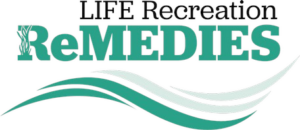 Life ReMEDIES – Reducing and Mitigating Erosion and Disturbance Impacts affEcting the Seabed
Life ReMEDIES – Reducing and Mitigating Erosion and Disturbance Impacts affEcting the Seabed
LIFE18 NAT/UK/000039
LIFE Recreation ReMEDIES is a £2.5 million, four-year marine conservation partnership project to Save Our Seabed at five Special Areas of Conservation in Southern England. ReMEDIES is by Natural England in partnership with The Royal Yachting Association, Marine Conservation Society, Ocean Conservation Trust and Plymouth City Council/Tamar Estuaries Consultative Forum. LIFE Recreation ReMEDIES is focusing on how sensitive seabed habitats are impacted by recreational activities. Together, our partnership aims to: Reduce recreational pressures on sensitive habitats; Restore and protect sensitive habitats; Promote awareness of these habitats and their importance.
The seabed is a vast, mostly hidden environment and few people know about its sensitive features, their location, and importance. On a healthy seabed, vital habitats like seagrass can flourish, which provide nursery grounds for young fish – including many commercially important species such as pollock, plaice and herring – offer food and shelter for protected creatures, help to reduce coastal erosion, clean surrounding seawater, and capture and store carbon. ReMEDIES is leading England’s largest seagrass planting effort. We’re aiming to plant a total of eight hectares of seagrass meadows – four hectares in Plymouth Sound National Marine Park and four hectares in the Solent Maritime Special Area of Conservation. Our project partner Ocean Conservation Trust is conducting the restoration work.
- LIFE SEPOSSO started the exchange of links in the social activity to increase the visibility of the project products (impact on Action D.1).
- Life SEPOSSO hosted Life ReMEDIES during the Final Meeting of 15 March 2022 “Posidonia… and more” for the exchange of knowledge between the projects on the governance of the restoring actions of the habitats of the Natura 2000 network and the restoration of ecosystem functions (impact on Action B.1 and B.4).
 Life INTEMARES
Life INTEMARES
LIFE15 IPE/ES/000012
The integrated LIFE IP INTEMARES project has the challenge of laying the foundations for effective management of marine areas of the Natura 2000 Network and to complement the work and progress made in the framework of the LIFE+ INDEMARES project, which has achieved a major breakthrough in declaring new areas. The LIFE IP INTEMARES project aims to achieve a network of efficiently managed marine Natura 2000 sites, with the active participation of the sectors involved and research as the basic tools for decision-making. Specific objectives: i) Research: to improve the knowledge required for the management of marine areas of the Natura 2000 Network. ii) Conservation: to ensure a favourable conservation status of habitats and species of Community interest; to complete the Natura 2000 network in the marine environment and to ensure effective management of the sites. iii) Monitoring and surveillance: to improve the surveillance and monitoring of marine sites, as well as the conservation status of habitats and species of Community interest. (iv) Participation and training: provide capacity building and training for managers and users of the sea; promote information, awareness and cooperation between agents involved in conservation; promote innovative approaches in the marine Natura 2000 network and the opportunities that these sites can offer as reference areas for a new production model in the framework of a blue economy; involve socio-economic sectors and users of the sea in the management of the sites; promote governance mechanisms for these areas; demonstrate the effectiveness of integrated management and disseminate it so that it can be applied in other regions of the EU. (v) Communication, awareness and environmental education: reach 15% of the Spanish population; obtain a better knowledge of the marine environment and the Natura 2000 Network; raise public awareness of the importance of marine Natura 2000 conservation; involve society in the management of the sites and increase social participation.
- LIFE SEPOSSO started the exchange of links in the social activity to increase the visibility of the project products (impact on Action D.1).
- Life SEPOSSO hosted Life INTEMARES during the Final Meeting of 15 March 2022 “Posidonia… and more” for the exchange of knowledge between projects on the governance of management actions and protection of habitats of the Natura 2000 network and for the dissemination of the importance of habitat protection (impact on Action B.1 and D.1).
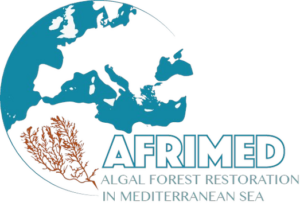 AFRIMED
AFRIMED
EASME and EMFF grant No 789059
AFRIMED is an european project on the restoration of the degraded macroalgal forest (Cystoseira). This project has received funding from the Executive Agency for Small and Medium Enterprise (EASME) and European Maritime and Fisheries fund (EMFF) under grant agreement No 789059
AFRIMED aims at developing, implementing and promoting a protocol to effectively restore macroalgal forests (Cystoseira spp.) in the Mediterranean Sea in order to maximise the delivery of conservation, societal and economic benefits
In order to achieve this objective, we will harness the knowledge and expertise of a multidisciplinary team to develop, refine and implement novel restoration actions, and formulate guidelines that can be used to bring about measurable change in macroalgal forest health in the region. A key ambition is to deliver clear and robust methods that can support the successful upscaling of the project in larger and new regions and maximise buy-in from, and the benefits provided to, relevant stakeholders. This objective will be achieved by: -Bringing together the information required to spatially prioritise restoration efforts under present-day and future conditions; -undertaking novel laboratory and field-based experiments in order to maximise the probability of restoration success and the delivery of ecosystem services; -delivering concrete and robust methods that can be used to replicate and upscale the restoration efforts; -promoting cooperation with the private sector and public authorities, enhancing mutual scientific learning across the region and raising the awareness of restoration in order to strengthen skills and buy-in across the Mediterranean; -highlighting the ecosystems service and socio-economic benefits of restoration to a multitude of stakeholders; -identifying the governance frameworks needed to optimise the delivery and effectiveness of restoration and the benefits provided to society.
- LIFE SEPOSSO started the exchange of links in the social activity to increase the visibility of the project products (impact on Action D.1).
- Life SEPOSSO hosted AFRIMED during the Final Meeting of 15 March 2022 “Posidonia… and more” for the exchange of knowledge between the projects the governance of the restoring actions of the habitats of the Natura2000 network and the restoration of ecosystem functions (impact on Action B.1 and B.4).

